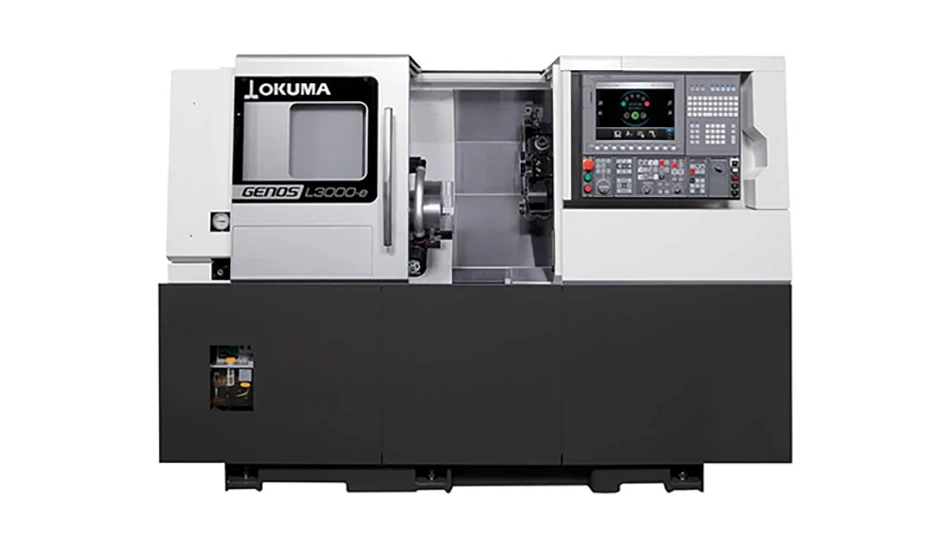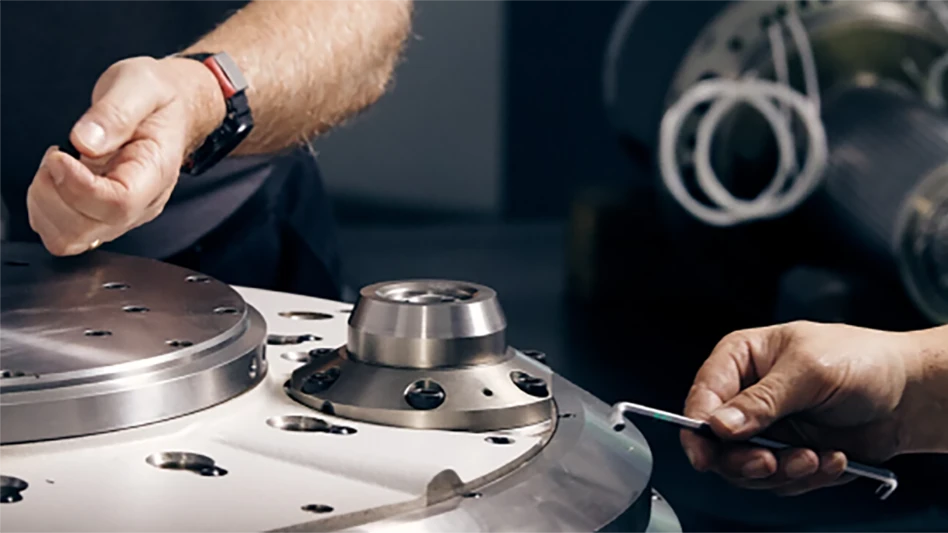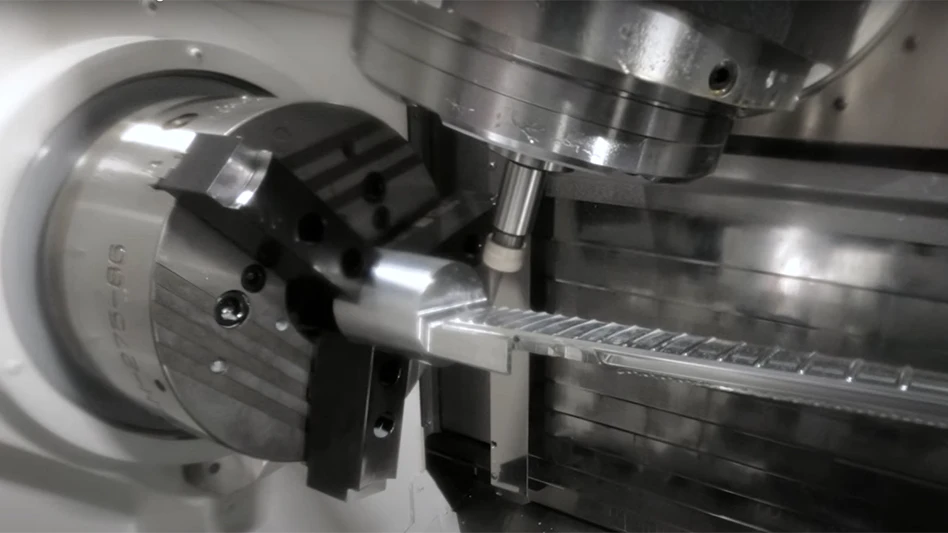
CREDIT: UCIMU-SISTEMI PER PRODURRE
For the Italian manufacturers of machine tools, robots, and automation systems, the year 2024 is closing with a considerable fall of almost all economic indicators. The year 2025 will not be bright, but however, a weak trend reversal is expected.
This, in brief, is what was illustrated by Riccardo Rosa, president of UCIMU-SISTEMI PER PRODURRE, the Italian machine tools, robots and automation systems manufacturers' association, during the usual year-end press conference.
Based on the preliminary data prepared by the Studies Dept. & Business Culture Centre of UCIMU-SISTEMI PER PRODURRE, in 2024, production stood at 6,745 million euro, showing an 11.4% drop over the previous year.
The downturn was exclusively due to the sharp contraction of deliveries by manufacturers on the domestic market, which did not exceed 2,255 million euro, i.e. 33.5% less than in 2023 and which were held back by the low investment propensity of Italian users.
The measure of this weakness is expressed by the figure of household consumption, which collapsed by 34.8% to 3,795 million euro. This trend also impacted the performance of imports, which fell by 36.5% to 1,540 million euro.
The performance of Italian manufacturers on the foreign market was different, as highlighted by the figure of exports, which grew by 6,3% versus 2023, to 4,490 million euro, new record value never achieved before.
According to UCIMU processing of the data from the Italian National Statistics Institute (ISTAT), in the period January-August 2024 (latest available data), the main destination markets for the Italian sector offering of machine tools only were the United States (419 million euro, +17.8%), Germany (243 million euro, +12.3%), China (138 million euro, -15.3%), India (132 million euro, +100%), France (125 million euro, -9.3%).
The export/production figure went up to 66.6%.
For 2025, the expected results should include a return to a positive range, but with very moderate increases. In particular, according to the forecasts compiled by the Studies Dept. & Business Culture Centre of UCIMU, production should increase again in 2025, attaining 6,940 million euro (+2.9% versus 2024).
This outcome should be due to the positive performance of exports - likely to remain stationary (+0.3%) versus 2024 at 4,505 million euro (new record) - as well as to the moderate recovery of deliveries by Italian manufacturers, which should grow to 2,435 million euro (+8% compared to 2024), driven by the revival of domestic demand.
Italian consumption of machine tools, robots and automation should increase to 4,070 million euro, corresponding to 7.2% more than in 2024. Imports should also benefit from the (weak) recovery in domestic demand, as shown by the forecast figure indicating a 6.2% growth to 1,635 million euro.
The export/production ratio should decrease slightly to 64.9%.
Riccardo Rosa, president of UCIMU, comments: “After the summer, it became clear that 2024 would be ‘a completely lost year’ for the Italian machine tool industry, which however tried (unsuccessfully) to save the final outcome through overseas activity. This was the situation and nevertheless, our Studies Dept. & Business Culture Centre had to further revise downwards the estimates submitted in September, a sign of the difficulty our companies are facing.
“Once again, the year that is closing highlights the ability of Italian manufacturers to orient their business rapidly towards the most dynamic areas in the world, starting with the United States, where we have been doing well for many years now. However, looking beyond, the fear that the new US administration may decide to implement a new tariff policy on goods related to our production puts us on alert and forces us to carefully consider our internationalisation activities.
“Over the last few months, Oficina Italiana de Promotiòn Mexico was established as a special desk to support Italian member companies of UCIMU and Amaplast, in their knowledge and penetration of the relevant market, also for the Central and North American area.
“After all, the big problem for (Italian) manufacturers remains the domestic market which, after consuming at an unprecedented pace, is struggling to restart, also due to the long waiting time for the final adjustments and simplification of Transition 5.0, announced by the Government authorities in November, but not yet made effective.
“If it is true that the pace in the 2021-2022 period was not sustainable beyond a certain time limit, it is also true that now the value of the Italian market has sharply decreased, returning to the 2016 levels. Too little, I would say. Because of this, important actions and measures are needed.
“Transition 5.0 is surely a great opportunity, because it prompts companies to think about a new and necessary approach to a proper use of resources, energy saving and sustainable production, as required by the European directives. Enterprises believe in the potential of this instrument, but corrective measures have to be implemented as soon as possible. Otherwise, once again, the opportunity risks remaining only on paper.
“We particularly appreciate the idea of substituting the obligation of energy-saving certification for the possibility of combining the new purchase with the replacement of obsolete machinery, (whose depreciation has been completed for at least 24 months). This would mean that a new machine could be purchased under 5.0, if the purchase were related to the replacement of a machine that were at least 7 years old. But we also appreciate the increased tax rates, the possibility of cumulating the measure with incentives for the SEZs (Special Economic Zones) or other incentives financed with non-domestic resources and the extension of the measure to the first four months of 2026.
“If these adjustments are actually included in the Budget Law, demand should certainly restart to the benefit of the entire manufacturing industry in Italy, which needs to innovate in order to maintain a competitive product offering, also in line with the sustainability directives defined by the European Union.
“With regard to the Green Deal we cannot but note the position of the European Union, which intends to proceed with the electric transition plan for endothermic engines, with the time frame and procedures currently established: this is severely testing the manufacturing industry in the old continent.
“What we are currently witnessing, with the closure of some automotive factories and the layoff of thousands of workers, including those in related industries and activities, risks triggering a domino effect that could bring a serious social problem for most of the countries in the area, starting with Italy. We absolutely cannot allow this and thus, I think, it is necessary for all representative bodies of the industrial world to make their voices heard, before it is really too late. This is a game involving entrepreneurs, managers, workers and government institutions for the common interest of defending the industry, which is the basis of the economic system in Italy and Europe.
“The manufacturing system is an essential element for the well-being of society. For this reason, to the government authorities, we reiterate the need to reason, from the beginning of the year, on a new industrial policy programme that may accompany and support the development of enterprises from 2026 onwards.”
Latest from Today's Medical Developments
- Advancing R&D of fully automated insulin delivery systems
- Start the new year off right – get up to date with the additive manufacturing industry
- CCAI Finishing Education Foundation’s 2025 National Scholarship Program
- Moticont’s next linear servo motor in the GVCM-032 series
- Walter USA unveils new state-of-the-art campus
- Fixtureworks’ manual-style snap clamps
- Cutting Tool Market Report shows orders up from Sept. 2024
- Mahr’s expanded Precimar SM 60 length measurement family





